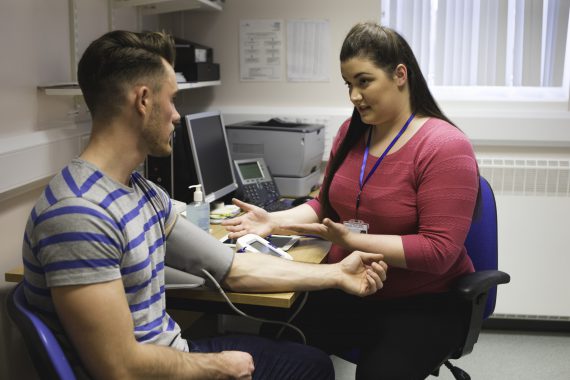Exclusive Around 25% of evening and weekend appointments are being left unfilled, a Pulse investigation reveals on the day the policy is being rolled out across England.
An FOI request, answered in full by 80 CCGs, shows that across those CCGs around half a million appointment slots have been left empty on evenings and weekends.
This comes as the average wait for an in-hours appointment remains at two weeks, and one in six practices has had to stop booking routine appointments.
Evening and weekend appointments have been gradually introduced since 2014, on the basis of a Conservative Party pledge which is now promising every patient will be able to book a routine appointment any day or evening by March next year.
To ensure the pledge is fulfilled, NHS England has mandated remaining CCGs to launch their seven-day GP services from today.
The Government and NHS England have continued to pump money into this scheme, with specific pledges being made in the GP Forward View, and CCGs given earmarked funding. In all, the NHS has committed more than £200m of new investment for the next year, on top of £144m in 2017/18. More than £500m is due to be invested per year by 2020/21.
Yet Pulse’s analysis of FOI responses from CCGs operating the scheme shows take-up remains lowest on Sundays, when 37% of appointments go unfilled, followed by Saturdays at 24%. On weekday evenings, 23% of slots go unused.
Pulse estimates at least £15m has been wasted on the total of 501,396 unused extended hours slots across the 80 CCGs that responded to the FOI. This is based on NHS England’s evaluation of the scheme’s pilot, in which the cost of each appointment was around £30-50.
NHS Thanet CCG, in Kent, has seen patients book just 3% of available appointments on Sundays and 26% on Saturdays since April 2018. Nevertheless, Thanet has opted to increase the number of appointments for the rest of this year.
A CCG spokesperson said: ‘We are working with our team to ensure there is a publicity campaign across East Kent prior to the national 1 October go-live date. Our expectation is that uptake will improve once awareness increases and will build with time.
‘For Thanet, this represents about 200 additional GMS appointments per week. We have no reason to believe we’ll have an issue filling the available slots.’
BMA GP Committee chair Dr Richard Vautrey said: ‘Because it has become a political must-do, everybody is jumping. We understand there is huge pressure from the centre on CCGs to demonstrate they are providing a full seven-day service.
‘Sensible CCGs that want to use their resources in a better way are under pressure to maintain a service that really isn’t good value for money.
‘That is ridiculous so I think we really do need to see much more common sense and pragmatic flexibility… if we had the luxury of resource and workforce then we could look at extending the service but until then we’ve got to focus on what is most important.’
RCGP chair Professor Helen Stokes-Lampard said it is ‘shocking’ that so many appointments are going unused.
‘GPs want to give patients access to services they need but this will differ depending on local demographics. At a time when general practice is struggling for resources and patients are waiting longer for routine appointments, to find out so many evening and weekend appointments have been unfilled due to lack of demand is shocking.’
In response to Pulse’s FOI data, an NHS England spokesperson said: ‘Even though six out of 10 CCGs didn’t respond to this small survey, the more representative results of the annual GP survey and the patient response to new digital-first GP providers is clear: patients want quicker access to a trusted GP both during the working week and outside traditional surgery hours, and are increasingly prepared to vote with their feet to get it.’
Pulse October survey
Take our July 2025 survey to potentially win £1.000 worth of tokens













